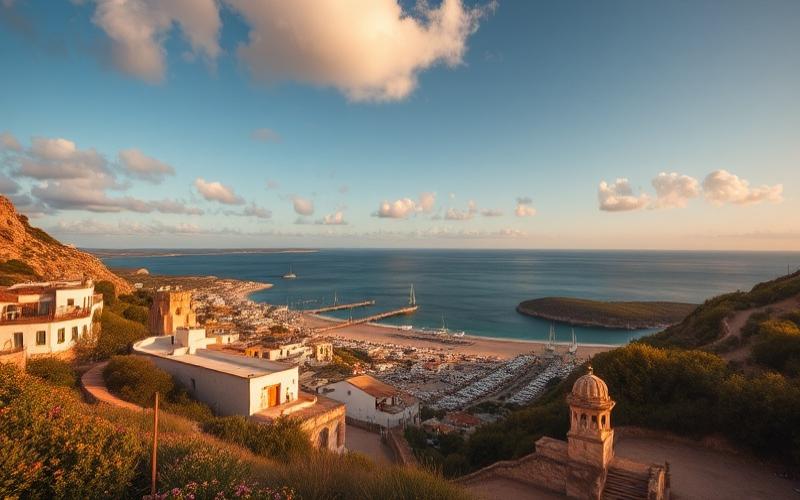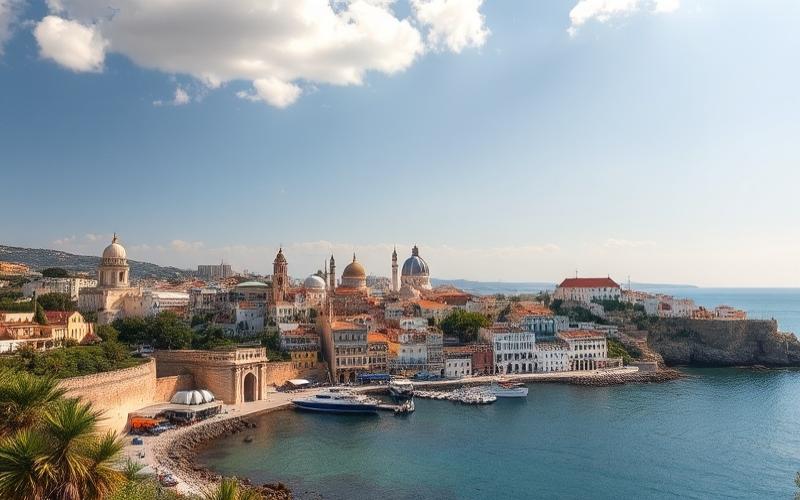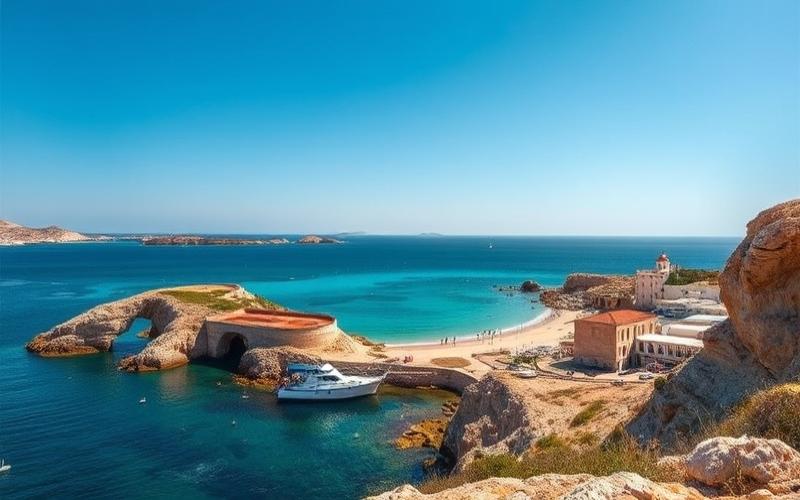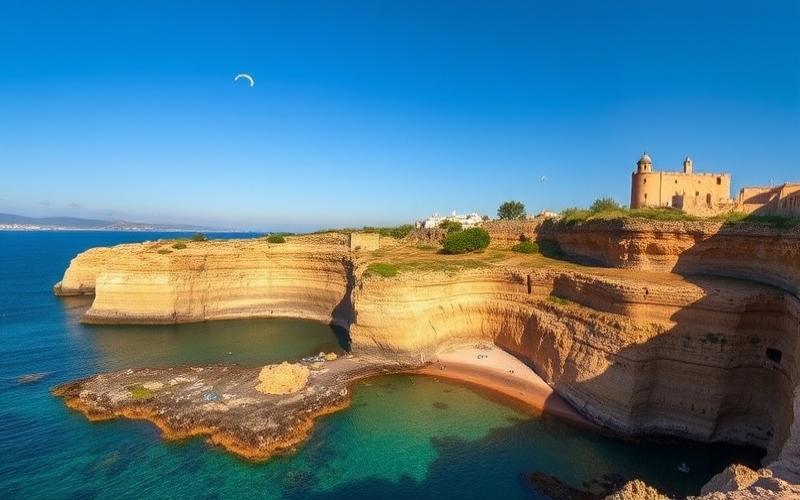
 Published on and written by Cyril Jarnias
Published on and written by Cyril Jarnias
Considering setting up a company in Malta? This Mediterranean gem, an EU member state, is attracting more and more entrepreneurs thanks to its favorable tax regime and business-friendly environment. However, before taking the plunge, it’s crucial to fully understand the costs associated with establishing and running a business on the island. In this article, we’ll break down in detail the various financial aspects to consider so you can plan your project with full knowledge of the facts.
The Entry Ticket: Registration Fees and Initial Formalities
When you decide to set up a company in Malta, the first step is to pay the registration fees to the relevant authorities. These initial costs can vary depending on the type of structure you choose, but they remain relatively affordable compared to other European jurisdictions.
For a limited liability company (Ltd), which is the most common legal form in Malta, the minimum required share capital is €1,165[1]. This amount must be deposited into a Maltese bank account in the name of the company being formed. It’s important to note that this capital can be released at only 20% upon creation, with the remainder callable later.
In addition to share capital, you’ll need to pay registration fees to the Registry of Companies. These fees vary depending on your company’s share capital, but for a standard company with €1,165 capital, expect around €245 in registration fees[1].
Don’t forget notary fees either, which are unavoidable in Malta for company formation. These fees can range between €400 and €1,000 depending on the complexity of your case[1]. It’s recommended to hire a local professional to ensure all documents comply with Maltese legal requirements.
Finally, publishing a notice of incorporation in the government Gazette is mandatory. This formality will cost you about €45[1].
Good to know:
The registration fees for a company in Malta are relatively moderate, with a total of approximately €1,855 for a standard Ltd, including the minimum share capital, registration fees, notary fees, and official publication.
Compliance Comes at a Price: Recurring Costs to Stay Compliant
Once your company is established, it’s essential to budget for annual compliance costs to keep your business in line with Maltese legislation. These expenses, while necessary, can represent a significant portion of your operational budget.
One of the most important expense items in terms of compliance is accounting and audit. In Malta, all companies, regardless of size, are required to have their annual accounts audited by a licensed auditor. The fees for an accountant and auditor can vary considerably depending on the complexity and size of your business, but budget at least €2,000 to €5,000 annually for these services[1].
Additionally, you’ll need to pay an annual tax to the Registry of Companies each year. This tax amounts to €100 for a standard company[1]. It’s crucial not to neglect this payment, as any delay can result in penalties and jeopardize your business’s proper functioning.
Maltese legislation also requires all companies to have a company secretary. If you don’t have the skills in-house, you’ll need to hire an external professional. A company secretary’s fees can range between €500 and €1,500 per year[1], depending on the responsibilities assigned.
Finally, don’t forget the costs related to your company’s registered office. If you don’t have physical premises in Malta, you’ll need to use a registered office service. These services can cost between €300 and €1,000 per year[1], depending on the provider and services included.
Good to know:
Annual compliance costs for a company in Malta can easily reach €3,000 to €7,600, including accounting, audit, annual taxes, company secretary, and registered office services. It’s crucial to budget for these expenses to avoid any surprises.
The Lifeblood of Business: Initial Investment to Hit the Ground Running
Beyond registration and compliance fees, the initial investment needed to launch your business in Malta will greatly depend on the nature of your enterprise. However, some costs are common to most projects and deserve consideration in your financial plan.
The minimum share capital of €1,165 for a Ltd may seem modest, but it’s important to note that this amount is rarely sufficient to start a business[1]. Depending on your industry and ambitions, you’ll likely need to plan for more substantial startup capital. For a service business, for example, an initial capital of €10,000 to €50,000 may be more realistic to cover the first few months of operation.
If you plan to hire local staff, keep in mind that the minimum wage in Malta is about €800 per month[2]. However, to attract qualified talent, you’ll likely need to offer more competitive compensation, especially in sectors like finance or information technology.
Investment in equipment and technology is another aspect not to overlook. Whether you need computers, specialized software, or industry-specific equipment, these costs can add up quickly. Budget at least €5,000 to €20,000 for initial equipment, depending on your specific needs.
Finally, don’t forget the working capital needed to cover your operational expenses during the first months, before your business generates sufficient revenue. A cash reserve equivalent to 6 months of operational expenses is generally recommended[1], which can represent a significant amount depending on the size and nature of your activity.
Good to know:
The initial investment to create a viable company in Malta can easily reach €50,000 to €100,000, or more, depending on your industry. It’s crucial to conduct thorough market research and establish a detailed business plan to accurately assess your capital needs.
The Entrepreneur’s Daily Reality: Operational Expenses to Anticipate
Once your Maltese company is operational, you’ll face recurring expenses that are essential to anticipate to ensure your business’s sustainability. These costs can vary considerably depending on your industry, but some are unavoidable regardless of your field.
Rent and associated charges often represent one of the most significant expense items. In Malta, commercial real estate prices vary by location and type of premises. In sought-after business areas like Sliema or St. Julian’s, office rents can range between €200 and €400 per square meter per year[3]. For a small business needing about 50 m², this can represent an annual cost of €10,000 to €20,000, excluding utilities.
Salaries constitute another major expense item. As mentioned earlier, the minimum wage in Malta is about €800 per month, but for skilled positions, you’ll need to plan for higher compensation. For a mid-level manager, the annual salary can easily reach €30,000 to €50,000[3]. Don’t forget to include social security contributions, which represent about 10% of gross salary for employers in Malta.
Costs related to utilities (electricity, water, internet) also need to be considered. Malta has some of the highest electricity rates in Europe, with an average cost for businesses of about €0.13 per kWh[4]. For a small business, this can mean a monthly bill of €200 to €500, depending on your consumption.
Don’t forget banking fees and insurance. Account maintenance fees for a company in Malta can range from €20 to €100 per month[1], depending on the bank and services included. As for insurance (liability, premises insurance, etc.), budget at least €1,000 to €3,000 annually, depending on your activity and coverage needs.
Finally, marketing and business development expenses are crucial for your company’s growth. A marketing budget representing 5% to 10% of your revenue is generally recommended[5], but this percentage can be higher for startups in the launch phase.
Good to know:
Monthly operational expenses for a small business in Malta can easily reach €5,000 to €15,000, or more depending on your industry and team size. Rigorous financial planning is essential to anticipate these costs and ensure your business’s viability.
Optimizing Your Budget: Smart Strategies to Reduce Your Costs
Although setting up and running a company in Malta involves unavoidable costs, there are several strategies to optimize your budget and reduce your expenses without compromising the quality of your operations.
One of the first cost-saving avenues to explore is your location choice. If your business doesn’t require a presence in the most sought-after business districts, consider less central but well-served areas. For example, towns like Mosta or Birkirkara offer more affordable rents while remaining close to main business centers. You could thus reduce your rental costs by 30% to 50%[3].
Using remote work and coworking spaces can also generate substantial savings. Malta has many modern, well-equipped coworking spaces, with rates starting from €150 per month for a workstation[6]. This option can be particularly interesting for startups or small businesses in the launch phase.
Regarding human resources, consider outsourcing certain non-essential functions. Accounting, marketing, or customer support services can often be outsourced to Maltese providers at competitive rates, allowing you to save on salaries and social security contributions[1]. Additionally, Malta offers tax incentives for hiring certain categories of workers, like recent graduates or long-term unemployed. Check with JobsPlus, the national employment agency, to learn about available programs.
To reduce your energy costs, invest in low-consumption equipment and educate your employees about best practices. Installing solar panels can also be considered, with government subsidies covering up to 50% of installation costs[7].
Finally, take advantage of the many business support programs offered by the Maltese government. Malta Enterprise agency offers various financial aids, including tax credits for research and development, innovation grants, and subsidized training programs[8]. These initiatives can help you reduce your costs while investing in your company’s growth.
Good to know:
By judiciously combining these optimization strategies, you can potentially reduce your operational costs by 20% to 30%. However, ensure these savings don’t come at the expense of your product or service quality, nor regulatory compliance.
Conclusion: A Strategic Investment for a Promising Future
Setting up a company in Malta certainly represents a significant initial investment, but offers attractive prospects for visionary entrepreneurs. With a favorable tax regime, a pro-business environment, and privileged access to European markets, Malta positions itself as a destination of choice for businesses seeking growth and optimization.
To recap, you can expect an initial investment of approximately €50,000 to €100,000 to launch a small business in Malta, followed by monthly operational costs in the range of €5,000 to €15,000. These figures can vary considerably depending on your industry, company size, and strategic choices.
It’s crucial to conduct thorough market research and establish a detailed business plan before taking the plunge. This will not only allow you to precisely anticipate your funding needs but also identify growth opportunities and potential challenges in the Maltese market.
Remember that the key to success lies in meticulous planning, rigorous financial management, and the ability to quickly adapt to market developments. With the right approach and a clear understanding of the costs involved, setting up your company in Malta can be the springboard to entrepreneurial success on a European scale and beyond.
Disclaimer: The information provided on this website is for informational purposes only and does not constitute financial, legal, or professional advice. We encourage you to consult qualified experts before making any investment, real estate, or expatriation decisions. Although we strive to maintain up-to-date and accurate information, we do not guarantee the completeness, accuracy, or timeliness of the proposed content. As investment and expatriation involve risks, we disclaim any liability for potential losses or damages arising from the use of this site. Your use of this site confirms your acceptance of these terms and your understanding of the associated risks.














